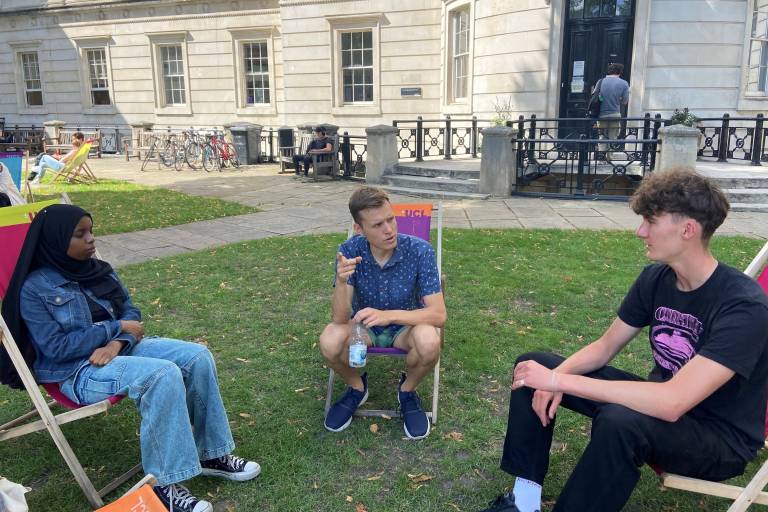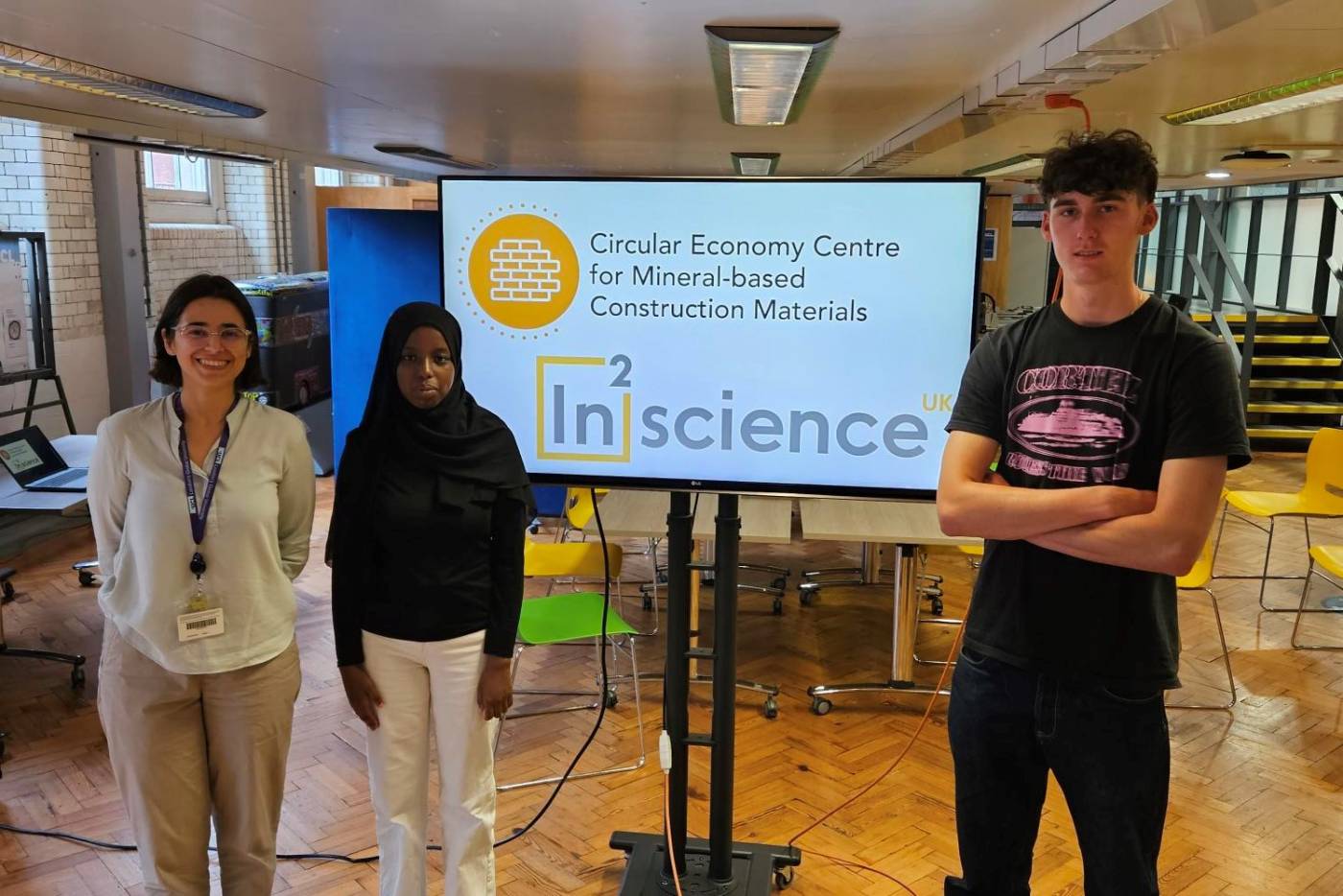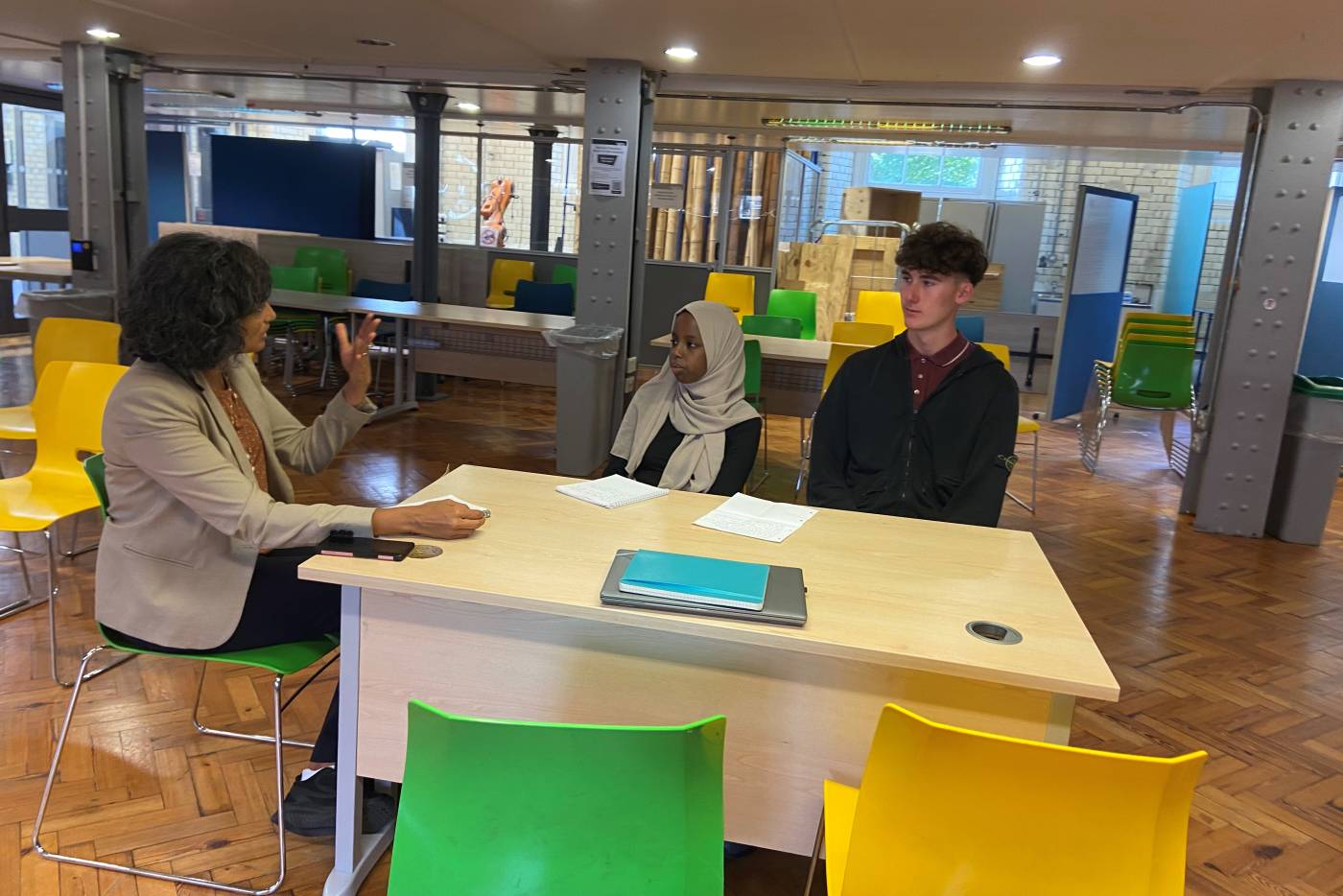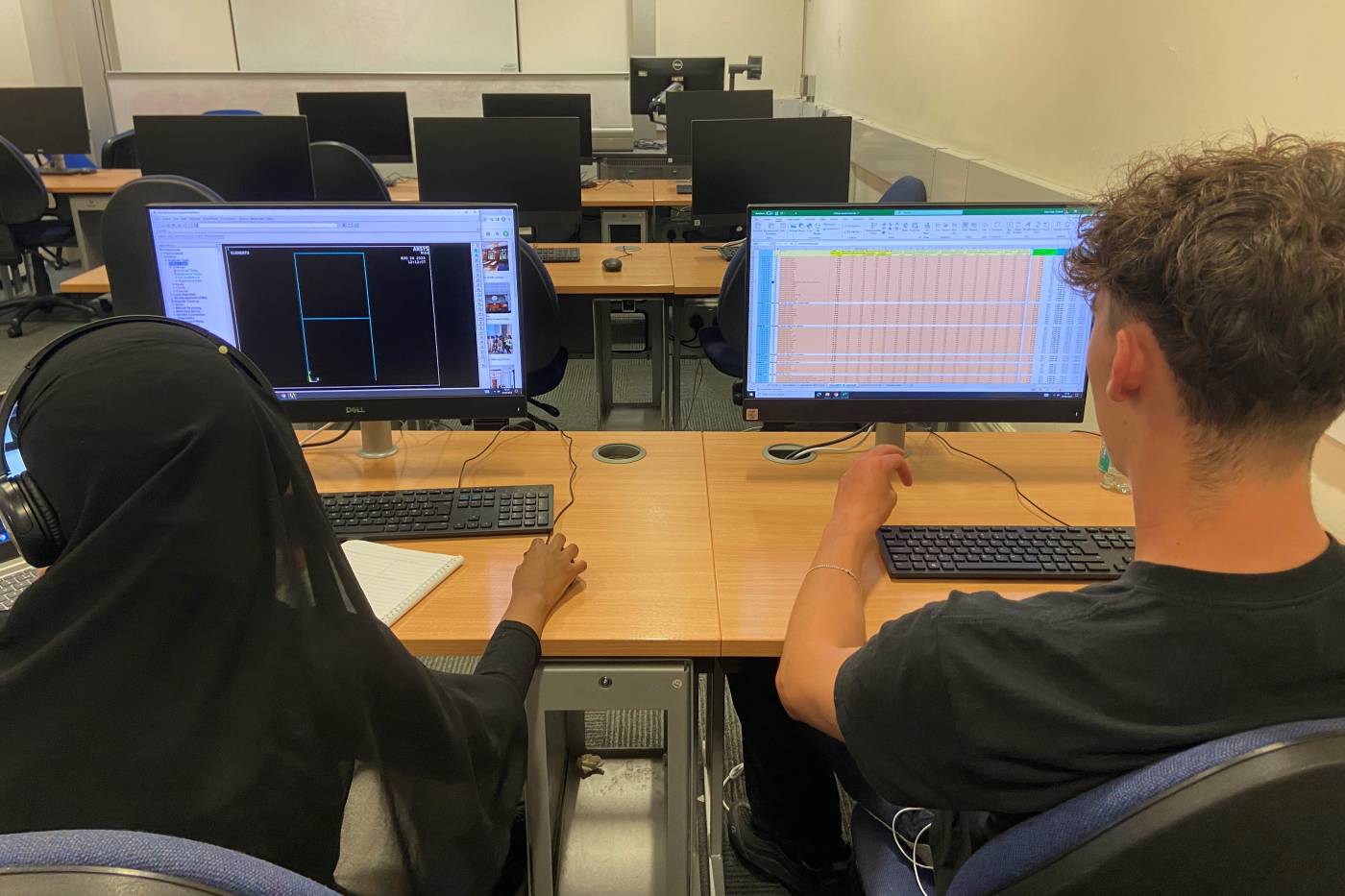The ICEC-MCM is empowering future sustainability leaders
26 September 2023
Bridging opportunities in sustainable construction through summer placements.

This summer, a research fellow of the Interdisciplinary Circular Economy Centre for Mineral-based Construction Materials (ICEC-MCM), Irene Josa, collaborated with the In2ScienceUK programme to provide a unique learning opportunity. Two sixth form students from diverse backgrounds joined the ICEC-MCM team to gain hands-on experience in the world of sustainable infrastructure.
The In2Science programme focuses on unlocking the potential of young individuals, aiming to enhance diversity in STEM fields. By hosting these students, ICEC-MCM is not only offering them a chance to explore the realms of circular construction but also contributing to the cultivation of the next generation of leaders in this sector, who will drive sustainable practices in the built environment.
Discover more about the journeys of Fatima and Rex as they share their personal experiences and reflections from their placement in the two blogs that follow.

Fatima, 17, Ilford
“In a world where sustainability is no longer just a buzzword but a pressing necessity, my journey into a day in the life of a civil engineer suddenly took an unexpected turn when I was first introduced to the concept of the circular economy and saw how it could be integrated into my experience from the past two weeks. This marked the beginning of an inspiring work experience that not only expanded my knowledge but also shaped my aspirations and sparked a newfound passion for sustainability.
During my work experience, one of the most inspiring chapters unfolded through the collaboration with a remarkable mentor. Working with Irene, a passionate sustainable engineer, led to an exploration of embodied carbon, bridge design, and urban planning. On our first day, an activity of building a bridge made of spaghetti and marshmallows was nothing compared to Irene's focus on creating lifelines that connect communities while minimizing ecological disruption. Irene’s field of study enabled her to infuse sustainable materials and design principles, resulting in innovative solutions that stood firm both structurally and ethically. Urban planning, the art of shaping landscapes, also captured my attention as we explored the intricacies of creating sustainable cities that foster community engagement while minimizing resource consumption. Incorporating technology into my work experience has enabled me to become creative in designing bridges and cities and also perform more complex calculations for data analysis. The use of advanced modelling techniques and software has granted me the ability to visualize and simulate real scenarios. Irene's insights and expertise added new dimensions to my perspective on civil engineering and inspired me to focus any work I do in the future on sustainability.
Amidst this journey, I had the privilege of crossing paths with remarkable people who would leave an indelible mark on my aspirations. Meeting Ramya and other women in STEM was a profound experience, particularly as someone hailing from a disadvantaged background and as a black Somali Muslim. Their stories of overcoming challenges to excel in their specific fields of research resonated with me deeply, instilling a sense of resilience. Speaking with individuals from various backgrounds enriched my perspective and bolstered my confidence to set my sights on prestigious universities. These encounters reaffirmed that barriers set in place to hold back ethnic minorities could be broken, regardless of one’s background or circumstances.
The journey has been a full circle, from being introduced to circular economy concepts to hearing from a diverse group of researchers with the insights and knowledge to change the future for the better. As I look ahead, I am no longer purely envisioning bridges and buildings; I am envisioning a sustainable and resilient world built upon the foundations of innovative engineering. My work experience has not only equipped me with new knowledge and skills but has also cultivated a deep-rooted belief that every individual, regardless of their background, has the potential to be a driving force in shaping a better tomorrow.”

Rex, 17, London
“During my time at the Interdisciplinary Circular Economy Centre for Mineral-based Construction Materials at UCL, I learned many new things and met some very interesting people. I participated in this two-week work experience placement with the aim of learning more about research and sustainability topics within civil engineering. Over the period I was there, I undertook a variety of research tasks, ranging from project proposals to embodied carbon calculations to CAD truss designs. The diversity of each day meant that I experienced an array of research methods and subject matters, expanding my knowledge of certain topics and broadening my horizons regarding research-based opportunities and their potential benefits.
One of the first tasks I did was a project proposal—a very different style of work from what I had previously done in school. It showed me the importance of analysing information to find relevant sources and using these as evidence to illuminate gaps within past research. Another favourite activity of mine was the life cycle assessment that I carried out. I focused on the LCA of a car, calculating the manufacturing, transport, use, and end-of-life carbon emissions. What I enjoyed about this task was the clear relevance and connection to real-life issues; it also showed me the direct impact that research can have on advising and informing government policy and sustainability decisions. The focus on sustainability was also prominent when I was doing embodied carbon calculations. First, I designed a model of a concrete building and then calculated the carbon footprint for all stages of the structure's lifespan: from the mining of raw materials to the disassembly or recycling of the materials at the end of their useful life. This was a useful experience to use critical analysis skills and develop independent research experience.
The importance of research into sustainability was emphasized by the conversations I had with members of the ICEC-MCM. Hearing their passion for their own fields was inspiring and has influenced my opinions on research. After previously having thought I would like to go straight into industry, now I would definitely consider pursuing a path with some element of academic research involved. The different approaches including experimental and theoretical research were explained by experts in each, which demonstrated the range of approaches that can be applied. Interdisciplinary work was also highlighted as being an essential part of the success of projects—receiving views from people with different expertise can be instrumental in obtaining a holistic outlook on all elements of a project.
Overall, this has been a valuable experience and has confirmed my interest in civil engineering and sustainability. I have learned useful independent and group research skills and developed communication skills through the presentations I gave and the conversations with researchers from the department.”

 Close
Close

